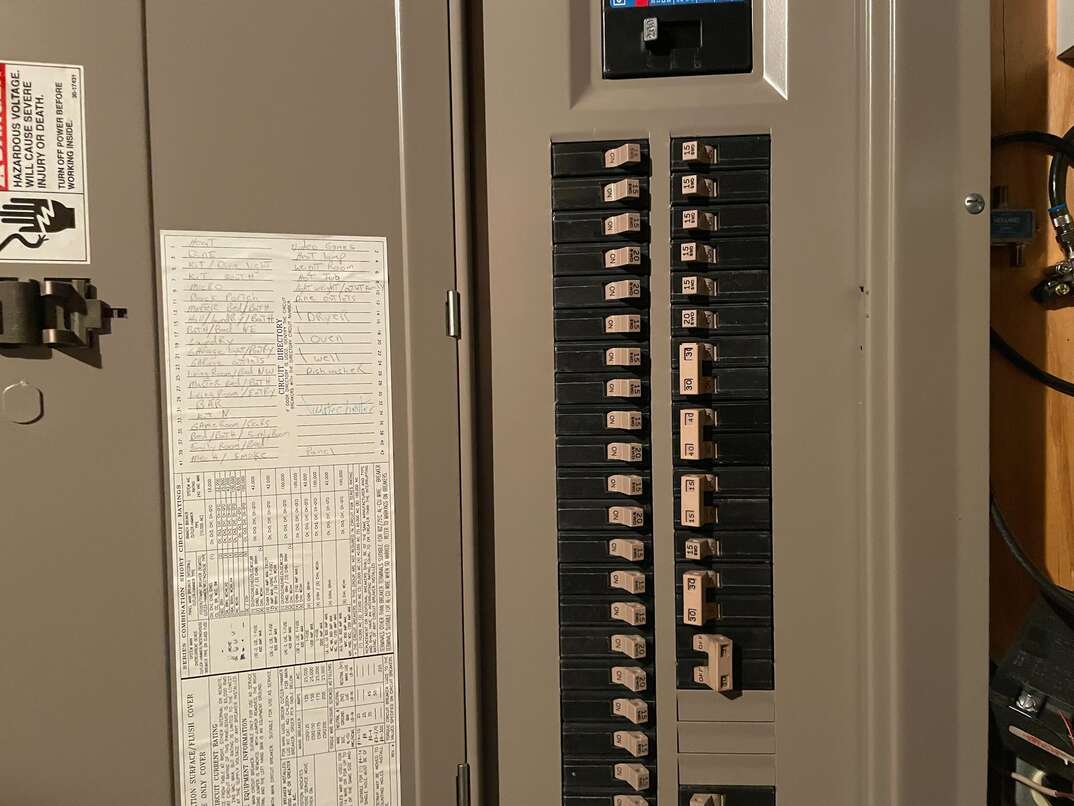- AppliancesElectriciansHVACLandscapingLocksmithPest ControlPlumbingRenovationRoofingT V RepairAll Home Improvement
- Car AccidentClass ActionCorporate LawCriminal DefenseDivorce LawEmployment LawFamily LawFinancial LawLegal AidMedical Injury LawyersMedical MalpracticeReal Estate LawWater Fire RestorationAll Legal
- InvestmentRetirementAll Finance
- Animal InsuranceAutoGeneral InsuranceHealth PolicyHome RentersAll Insurance
- DentalHealth SpecialistsAll Medical
- Animal CareVeterinaryAll Pets
- Auto GlassTowingAll Automotive
Why Does My Circuit Breaker Keep Tripping?

Tripping circuits can be a sign of electrical problems in your home if the problem occurs often. Do you know what to do if your circuit breaker keeps tripping? This guide reviews what causes circuit breaker tripping, how you can fix it and preventative measures you can take to keep it from happening in the future.
If you're having a lot of issues with your circuit breaker, you may need to call a professional to determine the best course of action. Before you pick up the phone to call in a pro, there are a few things you can do to handle the problem on your own.
When a circuit breaker cuts off electricity to an area of the home due to a power surge or overloaded circuit, it’s often called tripping the breaker. This is meant to protect your appliances from being damaged during storms and to keep your wiring from overloading if you put too much stress on an individual circuit in the home.
Circuit breakers are similar to fuse boxes. A traditional fuse box would require new fuses if a circuit was overloaded, but you’re able to reset a circuit breaker simply by flipping a switch.
Why Does My Breaker Keep Tripping?
You should observe what’s happening right before the circuit is tripped. If it happens whenever you use an appliance, you know that appliance is what’s causing the excessive power load. However, if you can’t identify any correlations between your appliances or devices and the breaker tripping, you could have a more serious problem. You may need to contact an electrician.
The first step to fix a short circuit is to identify which circuit was tripped. You can do this by checking your panel and seeing which switch is in the off position. If you haven’t done so already, you should map your circuit breaker so that you know which circuits control power to which rooms in your home.
Once you’ve identified the room with the problem, check to see whether you’ve overloaded your outlets with too many devices or if an appliance is drawing a lot of power. Fixing the appliance or plugging fewer items into the wall is usually enough to prevent future breaker trips.
How Do I Prevent It From Happening Again?
Inspecting and repairing your home's electrical system is the best way to prevent future issues. An electrician can tell you if your current breaker is able to provide enough power to meet your needs and whether your wiring is up to code.
More Related Articles
- How Do I Tell If an Electrical Issue Is Serious?
- Can One Bad Outlet Affect Others?
- How to Reset a GFCI Outlet
- What’s in My Electrician’s Van?
- 7 Ways to Save on Your Electric Bill
Safety Concerns When a Circuit Breaker Keeps Tripping
Safety is the top priority when you’re troubleshooting electrical problems in the home. If you’re going to attempt to fix any issues on your own, make sure that you turn the power off to the circuit you’re working on before diagnosing or repairing a problem. If you’re having problems with your circuit breaker, it could signal that your home is at risk for an electrical emergency if you don’t take further action.
Faulty Wiring
There are several reasons that wiring within your home may be short-circuiting. The first is that the wires have degraded due to wear, tear or overuse. Electrical surges can heat wires up and melt the protective coating over many years, exposing the wires.
Recent water damage or pest infestations may also threaten your wiring. Rodents make a habit of chewing through wires, and water can erode wiring when it gets inside your walls.
Bad Circuit Breaker
Sometimes, the circuit breaker itself could be the issue. It may be an older breaker that’s not able to handle your current power demand or one or more of its circuits need repairs. A preventative measure you can take is to have your electrical system inspected once a year to make sure you have equipment that can meet your home’s current power needs safely.
Power Surges
A power surge occurs when a sudden burst of electricity enters your home, either due to a lightning strike or an issue with your electricity company’s power transmission. Power surges can destroy appliances and electronics, trip circuits and overload your circuit breaker. One way you can protect yourself is to get a surge protector for your circuit breaker. It’s also not a bad idea to plug your computer or TV into a surge protector as well to be safe.
Elocal Editorial Content is for educational and entertainment purposes only. Editorial Content should not be used as a substitute for advice from a licensed professional in your state reviewing your issue. Systems, equipment, issues and circumstances vary. Follow the manufacturer's safety precautions. The opinions, beliefs and viewpoints expressed by the eLocal Editorial Team and other third-party content providers do not necessarily reflect the opinions, beliefs and viewpoints of eLocal or its affiliate companies. Use of the Blog is subject to the
Website Terms and Conditions.The eLocal Editorial Team operates independently of eLocal USA's marketing and sales decisions.



